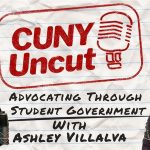Please visit the Library to view Fire and Freedom: Food and Enslavement in Early America, a traveling exhibit from the National Library of Medicine on display until Saturday, Nov. 3. This exhibit is co-sponsored by the School of Heath Sciences.
Meals can tell us how power is exchanged between and among different peoples, races, genders, and classes. In the Chesapeake region, during the early colonial era, European settlers survived by relying upon indentured servants, Native Americans, and African slave labor for life-saving knowledge of farming and food acquisition. Without this knowledge, Europeans suffered poor nutrition, in addition to widespread illness caused by the lack of medical care. Despite their perilous position, the colonists used human resources, the natural environment, and maritime trade to gain economic prosperity. But, it is through the labor of slaves, like those at George Washington’s Mount Vernon, that we can learn about the ways that meals transcend taste and sustenance.
Learn more online.
For faculty interested in incorporating the exhibit in their classroom, lesson plans, higher education modules, online activities, and additional resources are online.












